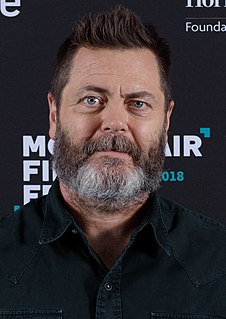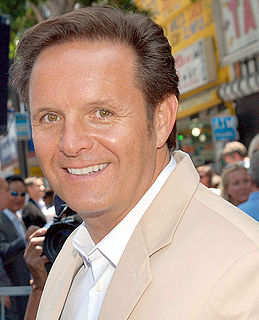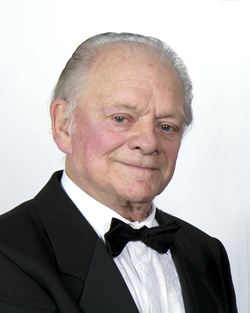A Quote by Clifford D. Simak
You still could go to some industry or some university or the government and if you could persuade them you had something on the ball—why, then, they might put up the cash after cutting themselves in on just about all of the profits. And, naturally, they'd run the show because it was their money and all you had done was the sweating and the bleeding.
Related Quotes
I have a very close friend who is a brilliant clown, and I always wanted to do a show with him. So I did one year at La MaMa Theatre. I had not done stilts before that show, and I had about two weeks to learn how to do that, and they were just made with off-off Broadway money. The ones that I had in Rogue One were made by [Industrial Light & Magic]. So they were really easy. They were made with actual prosthetic feet on the bottom. They were athletic, in a way. I could run in them. There was a bounce to them that I could use.
Government's running the student loan program; what in the world could be wrong with it? If the government's running it, if Obama's taken it over, and he's got a lot of compassion, a big heart, loves people, what could possibly be wrong with it? And then the subject of tuition came up, and how come tuition never gets cut? Why does tuition always go up? Guarantee, folks, when you subsidize something, if you run a university and the government's gonna subsidize parts of your operation, why in the world should you cut anything?
Peter was not with them for the moment, and they felt rather lonely up there by themselves. He could go so much faster than they that he would suddenly shoot out of sight, to have some adventure in which they had no share. He would come down laughing over something fearfully funny he had been saying to a star, but he had already forgotten what it was, or he would come up with mermaid scales still sticking to him, and yet not be able to to say for certain what had been happening. It was really rather irritating to children who had never seen a mermaid.
I figured if I could put together being funny about stuff and actual events, maybe I could do something that wasn't being done much. Because the reporters that I met out there were funny, and they had hilarious stories that just didn't fit in the AP/UPI/New York Times foreign-correspondent style. They couldn't use the things they had. But I could.
Then came the second Amsterdam discovery, although the principle was known elsewhere. Bank deposits...did not need to be left idly in the bank. They could be lent. The bank then got interest. The borrower then had a deposit that he could spend. But the original deposit still stood to the credit of the original depositor. That too could be spent. Money, spendable money, had been created. Let no one rub his or her eyes. It's still being done-every day. The creation of money by a bank is as simple as this, so simple, I've often said, that the mind is slightly repelled.
I could learn photography. That could be something to want. I could photograph children. I could have my own children. I would give them yellow roses. And if they got too loud, I would just put them some place quiet. Put them in the oven. And I would kiss them every day, and tell them you don't have to be anybody, because I would know that being somebody doesn't make you anybody anyway.
When I [first] went to university, I was doing foreign languages, because I had done them since I was 13 years old. I had done French and German. I picked up Italian, just sort of blasted through the exams, [and then] took off overseas, because I wanted to be an actor. I thought, "I'm just not academic." I'm not very competitive, in terms of acting. But since going back to university, I've realized, I am highly competitive.
I grew up with a single mom who was a waitress. We were on food stamps. My mom then got Pell Grants, put herself through college to get a degree to get a better job. Because we were broke, I then had to go to a state school. I went to Temple University, and had to get loans. So I grew up in a world where I saw the government helping individuals pull themselves up, and saw it work very successfully.
He talked a lot about the past, and I gathered that he wanted to recover something, some idea of himself perhaps, that had gone into loving Daisy. His life had been confused and disordered since then, but if he could once return to a certain starting place and go over it all slowly, he could find out what that thing was.
When you go to war as a boy you have a great illusion of immortality. Other people get killed; not you. . . . Then when you are badly wounded the first time you lose that illusion and you know it can happen to you. After being severely wounded two weeks before my nineteenth birthday I had a bad time until I figured out that nothing could happen to me that had not happened to all men before me. Whatever I had to do men had always done. If they had done it then I could do it too and the best thing was not to worry about it.






































